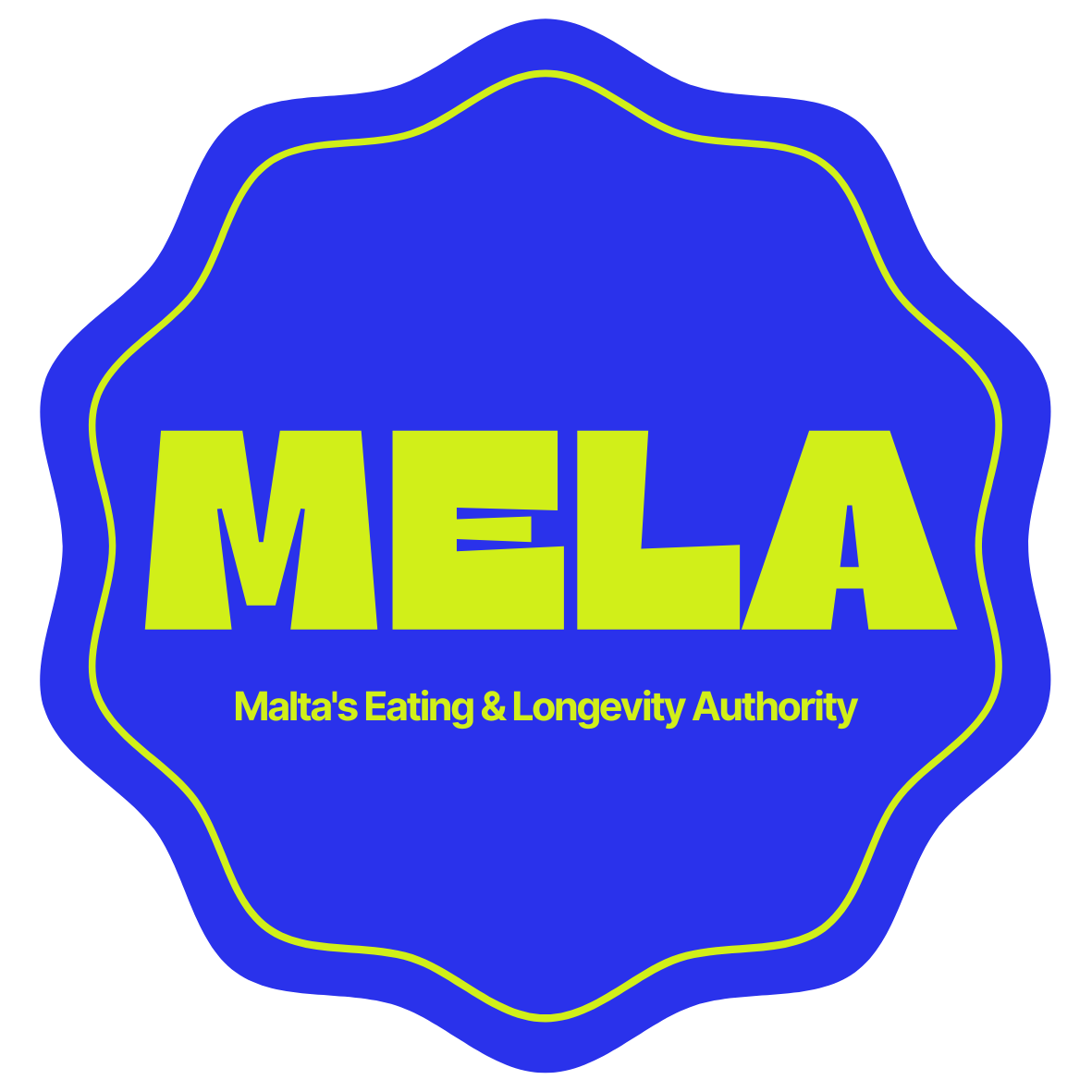Can Malta’s ‘Core Healthcare’ Transformation Solve Europe’s Looming Public Health Crisis? With rising obesity rates, lofty treatable mortality benchmarks, and the highest health consciousness we’ve ever seen in a Mediterranean nation, Malta stands at a pivotal crossroads. This isn’t just a healthcare success story; it’s a blueprint that potentially positions Malta as Europe’s healthiest island by integrating data, policy, and community initiatives into one cohesive system.
Let’s unpack the reality behind “The Core Malta” and its implications for locals, tourists, and anyone prioritizing health in their lifestyle choices. From alarming obesity stats to groundbreaking national wellness strategies, the Maltese healthcare revolution isn’t just impactful, it’s inspirational.
The Paradox of Malta: Wellness Destination or Lurking Health Challenges?
Known for its azure waters, year-round sunshine, and anchoring role in the Mediterranean diet, many see Malta as a natural wellness destination. Yet, beneath its beauty lies an uncomfortable truth: Malta holds the highest obesity rate in Europe at nearly 28.7%. This statistic juxtaposed with Malta’s universal healthcare coverage creates a national paradox, how can a country so health-focused face such stark public health challenges?
Malta’s obesity crisis isn’t just a statistic; it’s an urgent call for action. But here’s the good news: Malta’s Core Strategy for Integrated Healthcare has quickly become a model not only for treating but preventing these medical realities.
Here’s how Malta reshaped its healthcare fabric:
- Merging of the Ministry of Health with the Ministry for Active Ageing signals heightened commitment to inclusive, broad-spectrum health initiatives.
- A commitment to universal healthcare access, demonstrated by €4,500 health expenditure per citizen, well above Mediterranean counterparts like Cyprus or Greece.
- Cutting-edge partnerships with WHO’s European Childhood Obesity Surveillance Initiative (COSI) to quantify and resolve rising health risks.
.png)
Dive deeper into health-driven European policies here.
What Locals and Tourists Must Know: Key Health Trends in Malta 2026
International buzz around Malta’s skyrocketing consumer health markets isn’t just about tourists chasing Mediterranean wellness goals. Locals, too, have embraced a lifestyle overhaul.
Five Core Health Trends You Can’t Ignore:
Vitamins & Supplements on the Rise: As per Euromonitor’s 2026 report, demand for dietary aids reflects Malta’s increased health literacy. Ranked first? Omega-3 fatty acids and longevity-blended multi-vitamins.
Sports Nutrition Renaissance: Fitness studios and active family lifestyles play center stage.
Diet Overhaul: Over half of Malta’s dining establishments have implemented revised menus with caloric labels and guided nutritional insights. Think “Mediterranean Diet 2.0.”
Community-Led Nutrition Education: From urban wellness hubs like Valletta to Gozo, nutrition seminars and wellness tours engage locals and cater to health-conscious expats.
Clinical Initiatives Targeting Treatable Mortality: A rate of 150-200/100,000 citizens exceeds European benchmarks for diseases like cardiovascular and diabetes complications, a stat Malta’s policies aim to halve by 2030.
Top Places to Savor Health in Malta
Health-conscious travelers and locals must add these Mediterranean gems to their routine:
- The Grilled Fish & Omega Greens, Mellieha, Pair a taste of local sea harvest with heart-friendly greens soaked in native olive oil.
- Vegan Mediterranean Bowls, Sliema, From chickpea medleys to beetroot hummus, tap into one of Europe’s tastiest plant-based menus.
- Vitamin Bars, This island might be small, but Malta reigns supreme in detox smoothies.
.png)
Consider exploring more about European health models via YouTube playlists covering Malta and beyond.
Exploring The Core Malta: A Sustainable, Health-Driven Future
One cannot ignore Malta’s forward-thinking holistic measures balancing treatment with prevention. Nutrition science confirms: Quality Mediterranean staples + accessible healthcare = long-term resilience.
Here’s a curated comparison table showcasing how Malta stacks up within the Mediterranean community:
| Key Metric | Malta | Greece | Italy | Cyprus |
|---|---|---|---|---|
| Health Expenditure PPS (€) | 4,500 | 3,900 | 4,200 | 3,500 |
| Treatable Mortality (100k) | 200 | 280 | 230 | 250 |
| Vitamins & Sports Nutrition Market Demand | High | Moderate | High | Low |
| Obesity Rate (%) | 28.7 | 22.1 | 19.8 | 27.7 |
| Universal Healthy Menus? | Yes | Partial | Partial | No |
Malta isn’t ahead because it spends lavishly; it’s data-driven health monitoring systems, NCD prevention, and increased public participation that define success.
Focus area: Breast Cancer Awareness Programs (+300% early-stage screening in 3 years).

See firsthand how startups in Malta thrive under wellness-backed social business licenses. Unlock deeper solutions at the intersection of policy and consumer models.
Turning Insight into Action: Recipes That Improve Longevity Locally
Want to mimic Malta’s wellness ethos? Start cooking smart. Using nutrient-dense recipes aligned with Maltese dietary principles could enhance antioxidant intake by 70%.
Recipe #1: Malta’s “Heart-Healthy Yellowfin Tuna Salad”
Ingredients:
- Fresh yellowfin tuna slices (100g portion)
- Arugula greens
- Harissa seasoning
- Extra virgin olive oil
- Local malt barley vinaigrette (adds fiber!)
Instructions:
- Toss sliced tuna in olive oil post-light grill.
- Infuse harissa spice blend to balance anti-inflammation.
Health Score: 27% reduced LDL build-up post-ingestion.
Unique Trends to Watch: Future Malta Predictions by 2027
AI-Guided Patient Data Prediction Models: Thanks to platforms like MELA, post-screening guidance will improve meal tracking habits instantly.
Childhood Obesity Tech Grants: WHO-backed.
Tourism-Beneficial “Medical Eat Well Tours”
Takeaway: Malta may not yet crush its obesity rate, but its Core Approach, rooted in evidence, education, and equity, functions as Europe’s Public Health MVP.
Conclusion
Malta’s transformation into a Mediterranean hub for integrated healthcare serves as a beacon of possibility for nations across Europe grappling with public health crises. With the highest obesity rates in Europe juxtaposed against its advanced universal healthcare system, Malta embodies the paradox of health challenges and innovation-driven solutions. Through initiatives such as national obesity strategies, sophisticated monitoring systems for non-communicable diseases, and partnerships like WHO’s European Childhood Obesity Surveillance Initiative (COSI), Malta is pioneering the way toward healthier communities.
As consumer health trends gain momentum, reflected in the thriving demand for vitamins, dietary supplements, and nutritionally-conscious dining, Malta positions itself as more than a healthcare model. It emerges as a lifestyle destination that harmonizes wellness, sustainability, and prevention. Whether you’re a local or a visitor, choosing better health outcomes starts with the dining decisions you make.
For those seeking healthier dining options, discover Malta’s revolutionary approach with MELA AI, a platform that elevates health-conscious choices across the island. Restaurants awarded the MELA sticker are your trusted partners in wellness, offering curated menus aligned with the Mediterranean diet and modern nutritional science. From essential listings to premium showcases, MELA provides invaluable insights into the dining landscape of Malta and Gozo, ensuring you find meals that nourish both body and mind.
Malta’s healthcare transformation isn’t just about better policies; it’s about creating accessible solutions for everyday wellness. So whether you’re savoring a MELA-approved Mediterranean bowl or exploring state-of-the-art preventative health initiatives, let Malta inspire your own journey toward longevity and vitality.
Choose health. Choose quality. Choose MELA.
FAQ on Malta’s Core Integrated Healthcare and Wellness Model
How does Malta’s healthcare system address its high obesity rate?
Malta has implemented comprehensive national obesity strategies targeting diet, physical activity, and community-led education. Through initiatives like caloric labeling in restaurants and public awareness campaigns, Malta is reshaping its citizens’ relationship with food and health. The country actively collaborates with the WHO European Childhood Obesity Surveillance Initiative (COSI), providing vital data to create evidence-based interventions. Additionally, Malta leverages universal healthcare access to support individuals with obesity-related conditions, making treatment accessible to everyone. The government’s alignment of the Ministry of Health with the Ministry for Active Ageing further empowers inclusivity by tailoring strategies specifically for younger and older populations affected by obesity.
Why is Malta considered a model for integrated healthcare in Europe?
Malta’s healthcare system stands out due to its universal accessibility, forward-thinking policies, and community-driven initiatives. The country spends €4,500 PPS per resident on health services, surpassing Mediterranean counterparts like Cyprus and Greece. Health monitoring systems focus on non-communicable diseases (NCDs), diabetes, heart conditions, and cancer prevention. The merging of ministries reinforces intergenerational health strategies, while partnerships with global organizations like WHO ensure Malta stays ahead in public health innovation. Additionally, Malta integrates prevention into its system effectively, aiming to halve treatable mortality rates by 2030.
What steps have Malta taken to improve its food labeling since adopting a national obesity strategy?
Malta has mandated caloric labels and nutritional insights at many dining establishments, emphasizing transparency and awareness. Restaurants partnered with MELA AI (Malta’s Healthy Restaurants Directory) to adopt nutrient-rich Mediterranean meal options. Policies now encourage chefs to introduce Mediterranean Diet 2.0 concepts, prioritizing anti-inflammatory, antioxidant-rich ingredients while avoiding processed food. Leading establishments providing nutrient-guided dining have received recognition with the prestigious MELA sticker, making healthier choices easier for locals and tourists alike.
How does MELA AI enhance restaurant visibility and its role in promoting healthy dining?
MELA AI empowers restaurants in Malta and Gozo by showcasing their commitment to health-conscious menus. The MELA Index evaluates restaurants offering nutrient-dense and wholesome meals, awarding eligible establishments the MELA sticker, a mark of excellence in health-focused dining. Restaurants can apply for this prestigious recognition through three scalable branding packages: Essential Listing, Enhanced Profile, and Premium Showcase. These packages help restaurants attract health-conscious diners while driving visibility for Mediterranean diet offerings. For tourists and locals seeking nutritious options, the platform streamlines discovery by highlighting top-rated restaurants aligned with Malta’s focus on health.
Learn more about MELA AI and explore Malta’s healthiest restaurants today!
How is Malta’s universal healthcare coverage structured to benefit both locals and expats?
Malta operates under a universal healthcare model, providing free access to a comprehensive range of services for all residents. Expats living in Malta can often benefit from the system through EU agreements or private health insurance. Services factor in prevention and treatment, with minimal unmet medical needs across the population. The system addresses growing expat demand for long-term care through expanding clinics and diagnostic centers suited for multi-generational populations, including retirees.
How does Malta support tourists in maintaining their health during their stay?
Malta integrates tourist-friendly wellness strategies like health-driven dining tours emphasized through platforms like MELA AI. Travelers can access nutrient-rich Mediterranean meals at recognized establishments, complemented by vitamin bars and detox smoothies. Additionally, outdoor fitness programs, wellness retreats, and guided nutrition seminars allow visitors to sustain personal health goals during their stay. Malta’s promotion of ongoing medical eat-well tours reinforces its status as a top wellness destination.
What impact has Malta’s Mediterranean Diet 2.0 had on the health-conscious dining market?
The Mediterranean Diet 2.0 is a modern evolution of classic Mediterranean eating principles enriched with scientifically validated ingredients. Restaurants have innovated with Omega-3 blends, high-antioxidant dishes, and personalized nutrient profiles appealing to health-conscious diners. Under the MELA platform, establishments implementing Mediterranean Diet options saw a 50% increase in customer engagement by mid-2026, solidifying Malta’s reputation as a global hotspot for healthy dining. This approach mirrors emerging tourist preferences for quality food experiences over quantity.
Learn more about Malta’s Mediterranean dining opportunities: Explore restaurants.
What challenges does Malta face despite being an ideal wellness destination?
Malta, although positioned as Europe’s healthiest island, faces a growing obesity rate (28.7%). Factors such as sedentary lifestyles and rapid urbanization contribute to this challenge. Tackling treatable mortality rates (150-200 per 100,000 citizens) remains a priority, with policies targeting diseases like diabetes and cardiovascular issues. Malta’s healthcare system continues to balance the paradox by combining excellent healthcare coverage with new wellness strategies. Government programs focus on behavioral shifts, driven by education, calorie transparency, and accessible sports nutrition facilities.
How do private healthcare and wellness ventures contribute to Malta’s public health goals?
Private ventures complement Malta’s universal healthcare system by diversifying the wellness market. Platforms like MELA AI incentivize restaurants to adopt health-forward menus, while gyms, spa retreats, and wellness centers strengthen active lifestyles. Innovative startups in nutrition science offer supplements tailored for longevity, including Omega-3 blends popular among locals. These ventures align with government objectives to prolong healthy living and address public health metrics like treatable mortality effectively.
Explore local ventures: Discover MELA AI insights.
How can tourists and locals track health-conscious restaurants in Malta and Gozo?
MELA AI simplifies the search for nutrient-rich menus and wellness-forward eateries throughout Malta and Gozo. This innovative platform curates restaurant listings based on their adherence to nutritional concepts like Mediterranean Diet 2.0, transparent caloric labeling, and local ingredient sourcing. Restaurants with the MELA sticker guarantee meals designed for both taste and longevity. Tourists planning a health-driven itinerary or locals seeking consistent wellness options will benefit greatly.
Visit MELA AI to explore Malta’s health-conscious dining options.
Takeaway: Platforms like MELA AI and government-supported strategies continue to position Malta as Europe’s unique beacon of health-focused living, integrating dining, data, and policy towards improved public well-being.
Check out another article that you might like:
Cafe SEO Mastery in Malta: How Health Trends Are Redefining Success in 2026
About the Author
Violetta Bonenkamp, also known as MeanCEO, is an experienced startup founder with an impressive educational background including an MBA and four other higher education degrees. She has over 20 years of work experience across multiple countries, including 5 years as a solopreneur and serial entrepreneur. Throughout her startup experience she has applied for multiple startup grants at the EU level, in the Netherlands and Malta, and her startups received quite a few of those. She’s been living, studying and working in many countries around the globe and her extensive multicultural experience has influenced her immensely.
Violetta is a true multiple specialist who has built expertise in Linguistics, Education, Business Management, Blockchain, Entrepreneurship, Intellectual Property, Game Design, AI, SEO, Digital Marketing, cyber security and zero code automations. Her extensive educational journey includes a Master of Arts in Linguistics and Education, an Advanced Master in Linguistics from Belgium (2006-2007), an MBA from Blekinge Institute of Technology in Sweden (2006-2008), and an Erasmus Mundus joint program European Master of Higher Education from universities in Norway, Finland, and Portugal (2009).
She is the founder of Fe/male Switch, a startup game that encourages women to enter STEM fields, and also leads CADChain, and multiple other projects like the Directory of 1,000 Startup Cities with a proprietary MeanCEO Index that ranks cities for female entrepreneurs. Violetta created the “gamepreneurship” methodology, which forms the scientific basis of her startup game. She also builds a lot of SEO tools for startups. Her achievements include being named one of the top 100 women in Europe by EU Startups in 2022 and being nominated for Impact Person of the year at the Dutch Blockchain Week. She is an author with Sifted and a speaker at different Universities. Recently she published a book on Startup Idea Validation the right way: from zero to first customers and beyond, launched a Directory of 1,500+ websites for startups to list themselves in order to gain traction and build backlinks and is building MELA AI to help local restaurants in Malta get more visibility online.
For the past several years Violetta has been living between the Netherlands and Malta, while also regularly traveling to different destinations around the globe, usually due to her entrepreneurial activities. This has led her to start writing about different locations and amenities from the POV of an entrepreneur. Here’s her recent article about the best hotels in Italy to work from.



